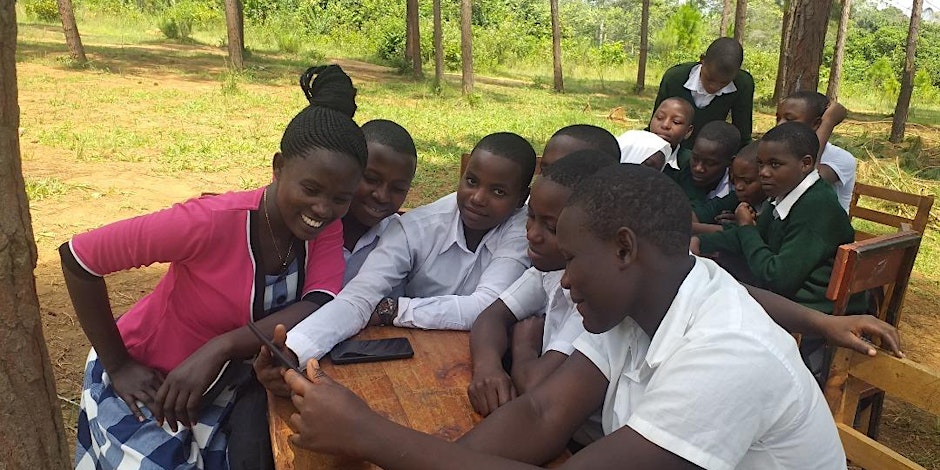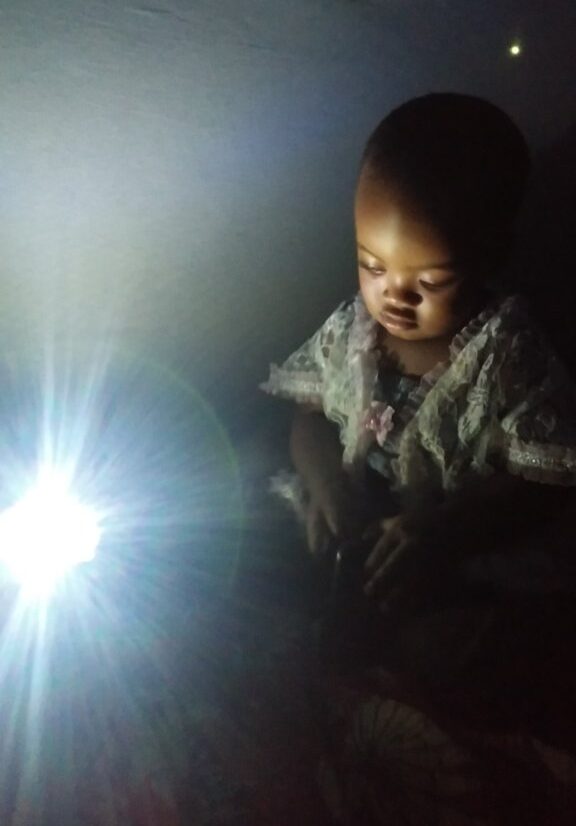In Tanzania, agricultural practices that harm the environment are causing devastating consequences for rural communities. The changes in the environment are making it increasingly difficult for small-scale farmers to grow enough food to feed their families and earn a living.
As a result, farmers are forced to encroach on natural environments and use destructive practices, which only worsens the problem. Illegal logging and deforestation are also contributing to the issue, leaving once fertile land barren and unusable.
All of these factors are leading to more hunger, poverty, and environmental destruction in Tanzania.




Climate Change
The impacts of climate change are already being felt in our communities. Rainfall has become more erratic, with long periods of drought, followed by short sharp heavy rainfalls. Extreme weather not only claims lives through water scarcity and flooding, but also means that food security has steadily declined.
Crops die from either lack of water, or flooding. As the annual temperature increases, heat stress means that less crops are produced, and the likelihood of pest and disease damage increases.
As the climate changes, it may also mean that the transmission of some diseases such as dengue fever and malaria may increase as warmer weather and standing water provide suitable conditions for vectors such as mosquitoes and ticks to thrive.
We know how vital it is for us all to act, to protect and restore our environment – and we are passionate about the work we do.
After all, it is our home; it is the lives of our communities that are already being impacted by climate change.
If we do not take action to address climate change, the consequences will become increasingly severe. Rising temperatures, combined with unpredictable weather patterns such as droughts and flooding, will lead to further challenges in agriculture and increased food insecurity.
The suitability of habitats for biting insects and the transmission of vector-borne diseases will also increase, leading to greater health risks. Additionally, climate change will exacerbate water scarcity and contribute to desertification, especially when coupled with poor agricultural practices.
All of these factors will lead to increased poverty, particularly in communities like ours.


“Climate change is having a growing impact on the African continent, hitting the most vulnerable hardest, and contributing to food insecurity, population displacement and stress on water resources…” (WMO Secretary-General Petteri Taalas)


Vedasto is a farmer who has joined our environmental campaign to stop the deforestation process known as ‘slash and burn’.
Tree Conservation and reforestation
We love our trees, and it’s heart-breaking to see so many around us being cut down illegally.
Delicate ecosystems are beginning to break down in our forests. Trees and land are being swallowed up by increased demand for food and income.
Now, more than ever, we are determined to focus our conservation efforts on looking after our indigenous wildlife and habitats.
We need to protect new areas and increase our management of existing areas to help them flourish and protect us against the impacts of climate change.
At the moment, income poverty in our communities leads to illegal burning of charcoal, timber, firewood and logging.
We also know that failing to replace trees, as well as farming at stream banks can add to the soil erosion.
We need our communities to understand that everything in our ecosystem is something to be cherished, and ultimately, gives us a better way of living.
We need to provide an alternative to damaging practices such as ‘slash and burn’ agriculture and help educate people about their environment and the impacts of climate change.
Reforestation is one of our current priorities.
Our vision is to plant our area of Tanzania with thousands of new trees.


Seedlings are grown and protected in our nurseries until they are strong enough to be planted.
Three years ago, we began planting 200,000 trees in four villages. The project involved 1000 people, 16 schools, farms, and community groups in partnership with local government. So far we have planted over 63,600 planted trees, over 51,000 in farms and 12,600 in schools and institutions.
The new trees are helping restore land and habitats that have been lost, provide shade, as well as fruit, nuts and berries to eat, and are used for natural medicines.
Trees such as palm, pines, fruits are being planted by local schools and health care centres. We have trained 30 youth ambassadors in six schools who are responsible for the looking after the trees at each site.
Three years ago, we began planting 200,000 trees in four villages. The project involved 1000 people, 16 schools, farms, and community groups in partnership with local government. So far we have planted over 63,600 planted trees, over 51,000 in farms and 12,600 in schools and institutions.
The new trees are helping restore land and habitats that have been lost, provide shade, as well as fruit, nuts and berries to eat, and are used for natural medicines.
Trees such as palm, pines, fruits are being planted by local schools and health care centres. We have trained 30 youth ambassadors in six schools who are responsible for the looking after the trees at each site.
We know how important it is to protect our existing trees and land. Income poverty in communities like ours leads to illegal burning of charcoal, timber, firewood and logging. We also know that failing to replace trees, as well as farming at stream banks can cause erosion.
We need our communities to understand that everything in our ecosystem is something to be cherished, something that ultimately, gives us a better way of living.
We need to challenge the damaging practices that still exist in the communities, such as ‘slash and burn’ agriculture, and help educate people on the climate and environment.
In 2020 we started a three-year plan to plant 200,000 trees in four villages. This project involves 1000 people, 16 institutions and at 11 streams will be planted by community groups in collaboration with local government. So far we have planted over 63,600 planted trees, over 51,000 in farms and 12,600 in schools and institution
Trees such as palm, pines, fruits and drought resistant Mvengi are being planted, by local schools and health care centres. We have trained 30 youth ambassadors in 6 schools who are responsible for the upkeep and progress at each site.

Moringa Oleifera
For the last decade we have been supplying communities with seeds from a fast growing and drought resistant plant called moringa oleifera. Benefits from the plant include medicinal, nutritional, beekeeping and soil improvement values. Moringa oleifera is the best plant for the restoration of degraded land and greening the environment.
In Zeze village alone, more than a half of the population now grow the moringa oleifera either at home or at the farms as a cash crop.
Wood Trees
As part of our efforts to reduce deforestation and illegal logging, we have been educating small farmers about the negative impacts of depleting the natural forest. Communities are encouraged instead to grow trees for timber and firewood. Coniferous pines provide an excellent source of fast-growing firewood and so far, we have planted around 10,000 trees supplied either from the nursery we established or distributed to small farmers.
Fruit Trees
Many small farmers weren’t interested in growing fruit trees because they take a long time to produce fruits. However, now many people understand that the trees are not only for eating but also for shade before they fruit. We have been providing palm trees, avocado and mango seedlings and individuals grow them as part of their involvement in the processes of managing the environment.
We aim to educate people through farmer training so more sustainable practices can be maintained. We also run sessions to educate the community and their leaders on climate change and adaptation means, with the aim of improving the land rather than shifting from exhausted soil to a virgin land.
Climate Education
Although grid electricity became available in Zeze in 2022, it is still unaffordable for most households. People still rely on wood as the main source of energy for cooking, and kerosene for lighting their homes.
This means often schoolchildren cannot study after dark, and when they do, the kerosene smoke causes stinging eyes and coughs.
We provide solar lights to subsistence farmers in Zeze village and beyond, which allows children to study after dark in a healthier environment. Families can use spend the money they save on kerosene to buy more nutritious food for their children, and maybe even start small businesses.
We are also manufacture clay stoves, which only use half the firewood of traditional cooking stoves.
Together with our other strategies, these reduce carbon production and deforestation, and allow sustainable growth.
Beekeeping
Another unusual method for discouraging illegal logging and deforestation has been the introduction of beehives in trees.
One benefit of the hives is that angry bees act as a deterrent to anyone considering removing their home! But the hives are also seen as someone’s vital source of income and means the trees are left alone.
We also educate communities about the disadvantages of starting wildfires and now deliberate burning of the land is reducing in areas with hives.
Since we began our initial project with 60 hives, we have now hung more than locally made 600 hives that are helping to protect the trees. We have shown communities how bees can be beneficial for income, nutrition and environmental conservation


Clean Energy


Grid electricity came very recently to Zeze, and many households cannot afford to connect to it. Therefore many people rely on wood as the main source of energy for cooking, and kerosene for lighting their homes, when they can afford it. This means often schoolchildren cannot study after dark, and when they do, they get stinging eyes and coughs because of the kerosene smoke.
We provide solar lights to subsistence farmers in Zeze village and beyond, enabling children to study after dark in a smokeless environment. Families will be able to spend the money they save on kerosene on more nutritious food for their children and to start small businesses as a route out of their current extreme poverty.
We are also manufacture improved clay stoves, which require 50% less firewood. Together with our other strategies, these will hopefully reduce carbon production and deforestation to allow sustainable growth.
Tanzania development Trust


We proudly work with the Tanzania Development Trust on various projects. MVG’s founder Benedicto is a local representative of TDT, and they strongly support our environmental work. You can purchase trees for us to plant directly from their shop!
1% for the Planet
In 2021 we were very proud to announce that we became official non-profit partners of 1% for the planet!
We are dedicated to taking action to ensure our planet and future generations thrive, and are so excited to join this incredible solution-driven, inspiring and global organisation!
Together, we can truly make a difference.
Climate Stewards


We were very grateful to Climate Stewards who, in 2020, funded us to plant 13,000 trees near the MVG site and at Zeze Secondary School.
These were a combination of 3 native trees, Msave, Mgoti and Muyovu, plus Avocado for producing fruit for nutrition and income generation.


